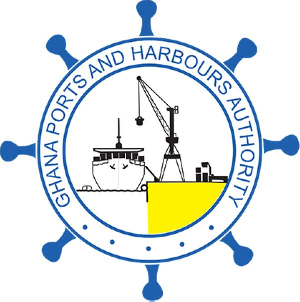The Curse of the Black Pearl
Forget Pirates of the Caribbean, the gulf of Guinea is fast establishing itself as the new pirates’ playground. Maritime piracy in West Africa is not a new phenomenon however recent attacks and the sophistication used illustrates a new development which is worrying for the industry. The motivations are obvious - the Gulf of Guinea has the largest source of energy located within Africa which brings Oil and Shipping companies into the region. From Cameroon to Gambia new oil and gas discoveries continue to be recorded and the increased maritime activity in this region is well documented. The operations of pirates are becoming clear – Attack anchored tankers carrying refined oils, steal the cargo and sell on the fast growing black market. The gangs are well resourced, most of them military elites from the days of fighting in the Niger Delta Region. They have suddenly discovered new territories off the coast of Togo, Benin, Cote D’Ivoire and Ghana, territories which evidently are not prepared for the pirates and still at sea on how to combat the growing menace.
The International Maritime Bureau, IMB notes the severity of the attacks used against ships navigating the waters of West Africa with as many as 20 incidents during a six-month period this year involving armed pirates in skiffs and other bigger sailing boats. According to the IMB, the majority of these attacks occurred some way from the shoreline, sometimes up to 120nm from coast suggesting that pirates were increasingly using fishing boats and other high end vessels to reach their target.
These pirates have access to ship movement intelligence along with a substantial network, personnel and expensive physical assets. These are well organised and motivated criminals. If the law enforcement agencies of the coastal countries in West Africa do not take determined action to arrest and prosecute them, they may soon discover a full blown criminal phenomenon taking root in coastal communities which they are unable to control. The increase in pirates’ personnel will continue to be proportional to the unrest in most of the West African Countries.
With oil production and transportation set to double in the next couple of years, it stands to reason that Black gold will continue to motivate pirates on the West African coastline.
Stat Attack
According to IMB September 2012 figures, global attacks on commercial and private vessels stood at 225 incidents year-to-date. The number of attacks in the Gulf of Guinea now stands at 45 attacks this year and has been on the rise recently. In the first half of the year there were 32 attacks in the Gulf of Guinea, which includes five hijackings, compared to the 25 recorded in the whole of 2011, according to IMB figures.
Alarmingly, during just a five-minute period in June 2012 three separate ships - a vessel, a container ship and tanker, were fired on 135 nautical miles off the coast of Nigeria’s oil capital Port Harcourt.
In Nigeria alone there have been 17 reports in 2012, compared with six in 2011. Togo had no pirate attack last year but has reported five this year, including a hijacking.
In 2011, about 20 tankers were targeted off neighboring Benin. Majority of these attacks were aimed at anchored vessels and cargoes of gasoil were subsequently stolen before the vessels were released.
In August, pirates attacked a Greek tanker off the coast of Togo stealing 3,000 tonnes of fuel.
In early October the Greek tanker Orfeas was attacked in Maritime Cote D’Ivoire
In Mid October the vessel Liberty 249 was hijacked by pirates and seven crew members taken hostage.
The incident off the Ivory Coast is however totally unprecedented and the furthest reported attack away from Nigeria. It does represent a potential game changer for West African piracy. Tanker operators had felt safe until this incident when performing ship to ship, (STS) operations further west in the Gulf of Guinea but these operators and cargo interests may now be seriously rethinking their strategies in light of the latest hijacking off Abidjan.
These figures unfortunately illustrates how piracy has gradually spread westward in the Gulf of Guinea for the past two years and is no longer a Nigerian phenomenon. The intensity and sophistication of the attacks continues to grow with the each attack.
Governments in West Africa require the highest degree of collaboration on the issue of maritime piracy. Cote D’Ivoire recorded its first pirate attack in October and unless drastic measures are put in place countries like Liberia and Ghana could be next.
Dead Man’s Chest
Piracy is big business globally, even though it has largely been concentrated in just a handful of zones, with East Africa being the epicenter. Last year alone, pirates netted $160 million, and cost the world economy some $7 billion, according to the American One Earth Future foundation. The business continues to be fuelled by cargo theft and ransom; ransom paid for M/V Irene SL for example was $11 million.
The world's busiest trading routes are still suffering from the ongoing threat of piracy, and when you include insurance, re routing, theft and ransoming etc pirates cost global trade up to US$12 billion annually. Hence, the global economy loses $380 every second to pirates.
The Modus Operandi in the region recently has been to siphon oil onto other tankers and it appears pirates in West Africa are less interested in holding hostages for ransom and more interested in stealing oil cargo.
For example in the case of the Ivorian attack, Greek-operated tanker Orfeas had been due to discharge 32,000 tonnes of gasoline at Abidjan, Ivory Coast.
The vessel was anchored and midway through a ship to ship (STS) operation off Abidjan when fourteen pirates armed with knives and AK47s boarded and hijacked the vessel. Under the control of the hijackers, the vessel left Abidjan, passing through neighbouring waters and coastlines of Ghana, Togo and Benin before finally arriving in Nigerian waters.
Orfeas was released on three days later, after approximately 3,000 tons of gasoil had reportedly been stolen from the vessel.
Nevertheless, ransom payment cannot be totally removed from the West African equation. The latest incident involving the hijack of Liberty 249 seems to suggest the involvement of ransom payment. At the end of 2010, around 600 seafarers from more than 18 countries are being held hostage by pirates.
Regional stability in West Africa is genuinely threatened by the increase in pirate attacks, especially coming at a time where small arms proliferation is a major concern in the sub region
On Stranger Tides
One noticeable trend which makes the West African issue noteworthy is that the increased attacks comes at a point where piracy in the much reported Horn of Africa has been on the decline.
Off the coast of Somalia, an area synonymous with piracy and ransom payments, attacks fell during the first-half of this year, when compared to the first six months of 2011. According to IMB statistics, incidents related to piracy fell from 163 to 69 year-on-year, while hijackings also fell from 21 to 13.
The International Maritime Bureau's (IMB) Piracy Reporting Centre confirms that pirate attacks off the Somali coast have declined by more than 54%. The MO of pirates in East Africa and West Africa, however different, both produce the same outcomes in dwindled investments and economic growth. This creates a cycle that only serves to perpetuate the interests of the pirates.
The motivations for pirates in West Africa so far have been purely economic, but in a region where political ends are always the ultimate, it is a natural progression for pirates in the region to accumulate political leverage. Hence the inland strife, warfare and insecurity invariably extends further south to the territorial waters providing perfect engine for piracy to grow.
The economic imbalances created by piracy cannot be over emphasized. There is the story of the legendary Faduma Ali, a Somali prostitute in the pirate haven of Galkayo who commanded $1, 000 per night- which the pirates gladly gave away without a scratch on their wallet.
An End Ahoy?
The human and economic costs of piracy are enormous. Piracy has a direct economic impact in terms of fraud, stolen cargos and delayed trips and could undermine a maritime state’s trading ability.
West African countries should take piracy more seriously and have a policy whose implementation stems the menace. Piracy threatens political legitimacy. There is a laissez faire approach towards piracy across Governments who do not see much of a problem to attract executive attention. This approach is dangerous when you consider the following scenarios.
First, imagine the environmental implication of a tanker to tanker collision on West African waters; stretch that imagination to pirates diversifying into destruction of interstate backbones that support Energy delivery in the region. Mix these scenarios with an outright ‘turf’ war at sea and you have a recipe for instability.
And if by extension, piracy has always been a lucrative appendage of in land strife, then these thoughts are closer to reality than imagination especially in the sub region.
In response to the increased attacks, the Nigerian and Benin navies commenced joint operations to police the waters off Benin. Bust just as many other policing operations, the consequence was to relocate the problem to a new destination.
To combat piracy, West African governments need to be proactive especially Governments in Ghana, Liberia, Cote d’ Ivoire and Benin – countries whose waters are becoming fertile grounds for attacks. There should be a clear regional and local policy that addresses piracy in the region. Such a policy should inherently build local capacity of all stakeholders in maritime safety. This would include training and equipping the navy etc in anticipating, locating and combating pirates; upgrading the legal system to meet the demands of maritime prosecution.
Piracy cannot be combated at the local level only hence regional bodies and the international community, global law enforcement need to combine efforts in continuous multi-lateral program of air surveillance of high risk shipping routes and fast tracked prosecution of those found guilty. It is also worth identifying the black markets which foster the trade in stolen cargo.
In the short term, we can look to the east for solutions.
International navies have cracked down on pirates, including strikes on their coastal bases, and ship firms are increasingly using armed guards and defensive measures on vessels including barbed wire. The legality and ethics (or otherwise) remains contentious but the results are obvious. There has been a reduction in incidents involving Somali pirates to just 69 in the first half of 2012, compared with 163 in the same period last year, according to IMB.
Governments can also in the short term provide armed response teams aboard high-value ships traveling in high-risk areas. The armed response should be capable of neutralizing fast-moving, heavily armed pirates.
There is evidence to suggest that piracy thrives along territorial waters of countries with lower economic growth, development and standards of living. It is not surprising that with their long coastal stretch and maritime activity countries like Canada and Norway are yet to record any significant maritime pirate attacks.
A long term solution to piracy requires looking more at what happens on land. Piracy is an extension of land-based violence, itself rooted in weak state institutions, poverty, domestic lawlessness and corruption.
The solution to piracy in the regional seas remains anchored on the policies and steps we take on land. After all that is where all pirates return to after a hard day’s work.
The author is the General Manager of Amitlaw Professional Development Centre, a leading provider of training and professional development for companies and stakeholders across the Oil & Gas, Shipping and Logistics Industries in the sub region. He can be contacted at seth.miah@apdcglobal.com
Opinions of Thursday, 1 November 2012
Columnist: Miah, Seth














